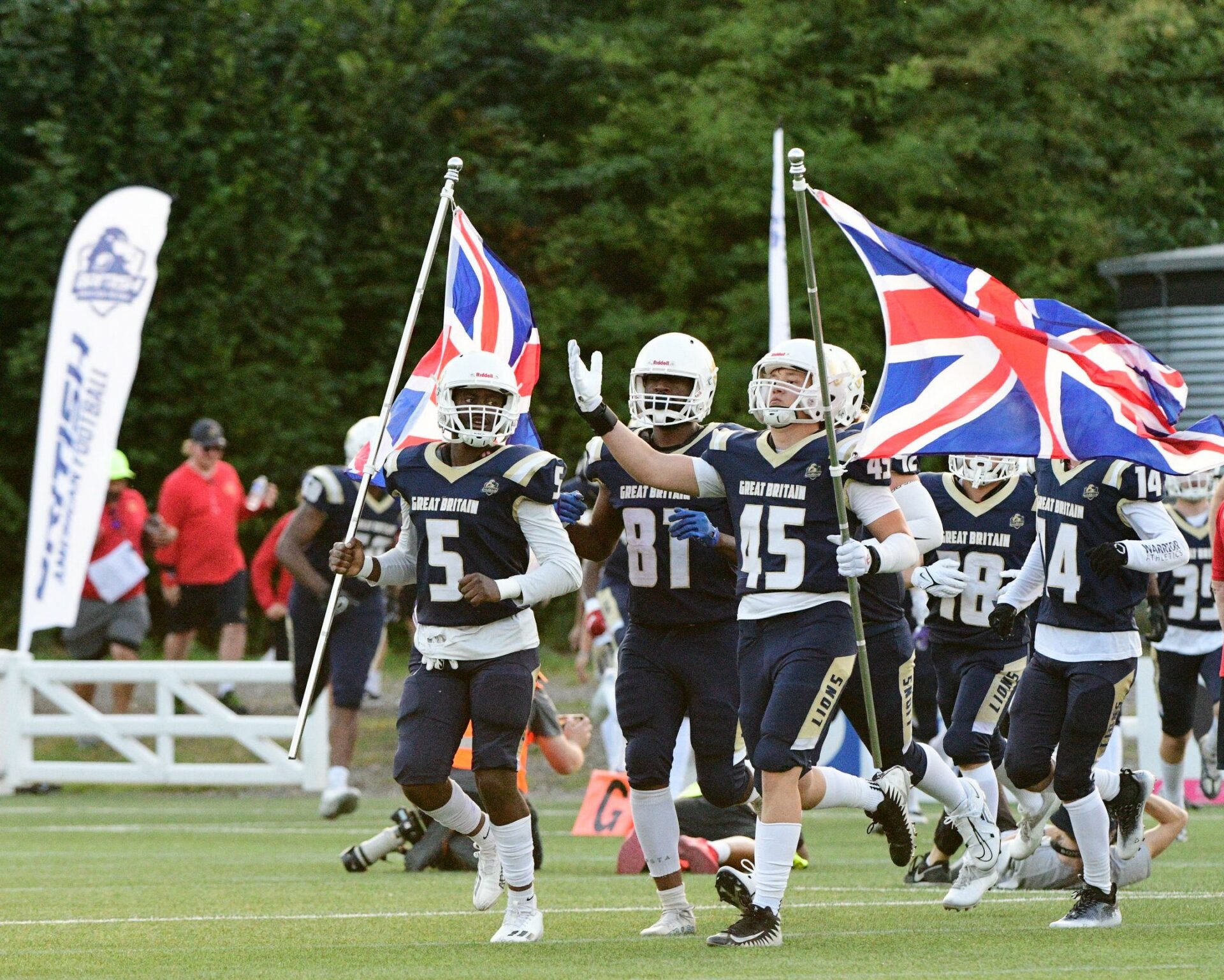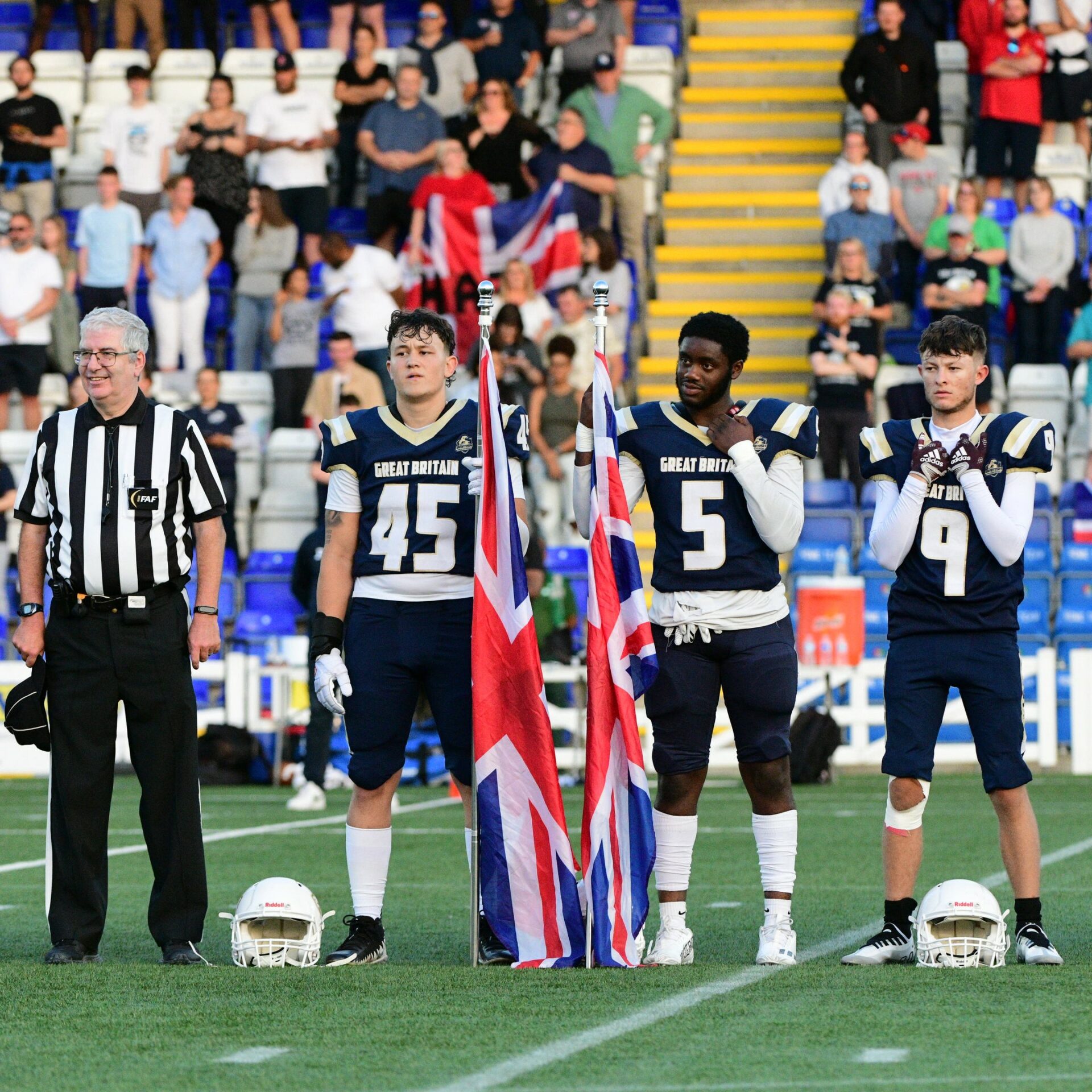After a thorough review and consideration of recommendations from within the National Programme, the BAFA Board has decided to withdraw the GB U19 contact team from IFAF competition for the 2024/2025 cycle. Instead, GB U19 will join GB U17 in operating outside of IFAF, allowing them to concentrate on talent development while independently participating against other nations.

Why are we doing this?
Over the past 18 months, IFAF has revised its delivery of European contact football competitions, opting for a fixed date home and away format. This format is financially challenging and does not account for teams without government funding. With short planning windows for bids and dates coinciding with expensive holiday periods, projected costs have significantly increased.
Our initial estimates suggest that over a two-year competition cycle, in a worst-case scenario, the cost of participation could exceed £120k for players and coaches, or simply put roughly £1k per person per year. This would result in the competition being accessible only to those who can afford to play, rather than the best players. Until such time as we are able to obtain additional investment or funding, this situation is unsustainable for our players, their families, and for BAFA.
While we appreciate GB U19 and our other National Programme teams have strived to operate on a cost-neutral basis, supported by a small amount of central investment and significant central resource, there is limited ability or appetite to extend this further. Feedback from recent contact review focus groups clearly highlighted community concerns about the wider game subsidising National Programme activity, particularly where it yields limited success. Suggestions were also made that we should be exploring alternative options to engage more players and reduce barriers related to distance and cost for age group teams.
Above all, we must also remain focused that the primary goal of the GB U19 programme is not solely to win European championships but to develop and grow our young players, creating a talent pipeline for our GB men’s programme. By recalibrating our objectives to prioritise player development, we believe we can make changes that will keep National Programme participation as affordable as possible for all our young players.
We understand that this is an emotive subject and disappointing news for many. We are hugely fortunate to have committed and passionate individuals involved with our U19 programme, and we acknowledge that not everyone will agree with this decision. However, we want to emphasise that the decision is driven by the primary goal of developing our players in the best, most cost-effective, and sustainable way. When compared, we do not believe that competing in IFAF competition, versus competing against the same nations outside of IFAF, provides enough of a difference in contribution to player development to justify the additional cost as things currently stand.
What’s next?
In the meantime, it will be ‘business as usual’ for GB U19, with trials and camps scheduled for 2024 ahead of securing international opponents. More broadly, we will undergo a cross-functional review of our entire youth talent pathway, exploring how expanding regional 11s teams for this age group can enhance quality, development, and reduce costs. These discussions will involve representatives from BAFA National Leagues, BUCS, and National Programme to create a robust and fit-for-purpose pathway with sustainability and player development at its core.
What About Other GB teams?
Our National Programme teams at all levels are reviewed for viability at every competition cycle. These changes also consider that the majority of players in this age group are either in further education or apprenticeships, unlike in the adult game where players may be more likely to be employed and better able to afford the cost of participation. GB U17s are not currently in IFAF competition for similar reasons and continue to participate independently.
If you have any questions, please contact Arran Harrison in the first instance.


